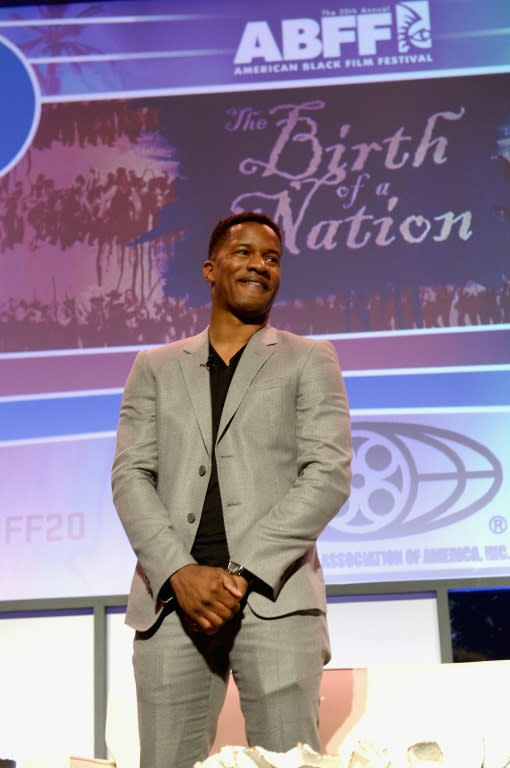Nate Parker and the rape case that won't go away
Two weeks ago, filmmaker Nate Parker had the world at his feet, readying for the release of "Birth of a Nation," a paean to racial equality tipped to sweep the Oscars. His directorial debut on one of America's most important slave rebellions has generated huge buzz amid nationwide protests over police shootings of black youths and with America polarized over immigration and terrorism. But there are doubts over whether Parker's passion project -- seven years in the making -- will get its release in October with the emergence of new details about a rape accusation of which he was cleared 15 years ago. Parker, now 36, and his roommate and "Birth of a Nation" co-writer Jean Celestin, were accused of raping an 18-year-old woman at Penn State University in 1999 while she was unconscious after a night of drinking. Parker was acquitted in 2001 but Celestin was sentenced to six months in prison for sexual assault before the conviction was overturned on appeal because the alleged victim refused to testify again. A dark episode Parker believed was behind him, the case exploded across the front pages last week when Variety magazine revealed that the woman had killed herself at a drug rehab center in 2012. Although there is no evidence linking her suicide at the age of 30 to the trial more than a decade earlier, questions have resurfaced over Parker's conduct after the woman made the rape allegations. She alleged that he and Celestin harassed, stalked and publicly identified her after she went to police, and she sued the university for failing to protect her, settling on a reported cash payout of $17,500. - 'Profound sorrow' - Parker said on Facebook last week that he was "filled with profound sorrow" to learn of the woman's suicide, while at the same time maintaining his innocence. "I see now that I may not have shown enough empathy even as I fought to clear my name," he said. Fox Searchlight bought "Birth of a Nation" for a record $17.5 million in January at the Sundance Film Festival, where it won the grand jury prize, prompting predictions of Oscars glory. It is due to screen in September at the Toronto International Film Festival, often a launchpad for the awards season, before it hits US theaters on October 7. But Fox is reportedly monitoring press coverage, with a view to delaying its release if the publicity surrounding the rape case renders a nationwide promotional tour by Parker untenable. In a first sign of choppy waters ahead, the American Film Institute said Tuesday it was postponing a screening and Q&A with Parker in Los Angeles slated for Friday, citing the many "passionate points of view" it had received about the film. "'Birth of a Nation' will ultimately come down to how well Fox can manage the PR over the next few months," an industry analyst who asked not to be identified told AFP. "Reviews are solid so far, so the film at least has that in its favor." - 'Victim blaming' - Parker may have hoped that his Facebook statement would draw a line under the issue, and he is not without support -- albeit off-the-record -- among fellow African American filmmakers. Variety quoted two unnamed black directors on Tuesday who voiced suspicions over the timing of the scandal resurfacing, with one wondering out loud if it wasn't "a way to muffle a very important piece of work." Meanwhile, civil rights campaigner Al Sharpton told African-American news site The Root that Parker should be allowed to get on with his life after being found not guilty. But for some, Parker's acquittal does not absolve him from some of the more disturbing details of the case, not only during but also after the alleged attack. "Right now, based on what I've read, I would not go to the movie," Academy member and Oscar voter Marcia Nasatir told the Hollywood Reporter. The Women's Law Project, which represented the student in her suit against Penn State, issued a statement this week highlighting a "pervasive bias and victim-blaming" in the legal system's treatment of sex crime allegations. A spokeswoman for the WLP told AFP its position on "Birth of a Nation" was "nuanced" but that it did not support a boycott, pointing to comments made last week by executive director Carol Tracy underlining the importance of free speech. Tracy said that while it was important for Parker to be able to visit campuses and to discuss the film, he should also be prepared to address the alleged assault.



